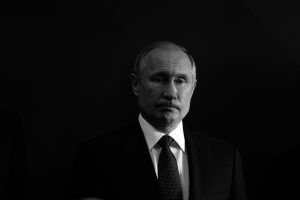
In today’s international dialogues, this is a key issue that remains unresolved. Bargaining involving people and illegal diplomatic initiatives are among the primary reasons why this issue cannot be resolved.
JANUARY 26, 2024

As a result of the clashes between Israel and Hamas after the October 7 Hamas terrorist attacks, the world’s agenda was turned to the Middle East and its actors, as always. The Israeli-Hamas clashes are continuing their 111th anniversary today. Even though it’s on its day, it still retains its warmth. Hamas killed 200 civilians, including foreign citizens, and took nearly 250 civilians’ hostage, especially during festivals in Israel. Although the families of the abducted hostages have pleaded with Israeli officials for help, Hamas seems determined to hold them until Hamas conducts “hostage diplomacy.” Israel, on the other hand, focused on finishing off Hamas by bombing Palestinian civilians in Gaza City in order to get the hostages back alive, demonstrating both its-for-tat and its repressive power.
Hamas’ use of “hostage diplomacy” in these conflicts is not a foreign term in the context of international relations, but it is contrary to international law and lacks the discipline of international relations. Using this strategy to release hostages in exchange for millions of dollars, or to provide a solution by exchanging hostages with the other side’s hostages, is of great interest to countries that practice hostage diplomacy. Although it is contrary to international law, it is a strategy frequently used by some countries. The first countries that come to mind are China and Iran.
China’s reputation and rise in public opinion inverted many questions from time to time. It is a fact that the public is questioning how this country, which has a communist regime, a one-party, oppressive, and authoritarian administration, and which is crowded but also has a high workforce, will appear in the international arena. Will the hegemon continue as a state? Will China emerge as an expansionist power as a result of its conflict with the United States? While these questions remain in mind, in the international arena, Chinese officials want to portray their country as a peace-loving country that respects international norms, with the “X Peaceful Rise” theory, which they want to emphasize.
Instead of hegemonic interests, commercial interests; Instead of an expansionist country, we come across a depiction of a country that adopts international law and assumes its protection. However, even if it is successful as a diplomatic agenda, when we look at China’s actions in the long term, we can see that this state, which is peaceful and adhering to international law and norms, has committed many international crimes. The most important of these is the “Hostage” and typical acts of espionage.
Although it is trying to show its good face to the rest of the world, China is aggressively targeting foreign tourists and dual nationals. In recent years, China has arrested two Canadian tourists, Micheal Kovrig, director of the International Crisis Group, Micheal Spavor, director of a cultural exchange program in North Korea, Austrian news anchor Cheng Lei, who holds dual citizenship, Nobu Iwatani, a Japanese history professor, Kai Li, a businessman with dual citizenship, and Phan Sandy Gillis, a businesswoman with dual citizenship.
Some of those detained have sparked an international crisis. For Canadian and American prisoners in particular, China has announced that prisoners in China will be released simultaneously with the release of Huawei Chairman Meng Wanzhou, who was arrested at the airport in the United States. In some foreign sources, it was reported that China received money from the prisoner’s country in exchange for some prisoners held captive, in order for the prisoner to return to his/her country.
Another of our actors, Iran, is trying to absolve itself of the crimes of establishing a paramilitary organization while the Middle East is on fire. In the wake of Hamas’ recent attacks, Lebanon’s strategic location and the Iranian-backed Hezbollah’s hold of power in Lebanon have raised questions about whether there will be any action taken against Israel. Iran, which is under an international embargo, is trying to normalize with some countries in terms of its own interests, while arresting foreign tourists and dual citizens on suspicion and keeping them in cells.
We can assume that these hostages, whose fate has been held for years in uncertainty, have been captured in the areas of dominance of Iranian-backed militias in the Middle East. Many of these hostages continue their lives in Iranian prisons amid legal uncertainty. Prominent examples include Nazanin Zaghari-Ratcliffe, a dual citizen and an employee of the Reuters Foundation who was arrested by the Revolutionary Guards in 2016 while trying to visit her family. Iranian authorities announced that Nazanin had been arrested on charges of “threatening the Iranian regime and attempting to overthrow it.”
In addition, Professor Kavous Seyes-Emami, who is Canadian and holds dual citizenship, is among the hostages. In 2016, it was also reported that a graduate student with dual US-China citizenship was arrested while coming from China and doing various research for his thesis. In 2019, in exchange for this young research assistant, Iran offered to exchange for Iranian scientist Mosoud Soleimani, who was imprisoned in the United States. Iran has been successful in using the “Hostage Diplomacy” strategy to its advantage but has failed to damage its image on the international stage.
The first reason is that the securitization issues of countries offer different perspectives. Outsiders may assume that the arrests and the issue of hostages are against human rights without examining the details of the issue. Of course, being held hostage and ill-treated is a violation of human rights, apart from international rights.
However, the governments and states in question may think that their own security is under threat against these people and that there may be a conspiracy attempt against them. Iran, for example, may suspect that any U.S. tourist is a potential spy, given past events. Because the fact that the United States openly supports regime change in Iran, the opposition movements of the United States in the past, the embargo decisions taken despite Iran’s strengthening in the Middle East, and the assassination of Qasem Soleimani, the top general and second man of Iran, by the United States in recent years, can give us an idea of why Iranians are paranoid. However, this does not mean that innocent people put up with inhumane behaviour because of suspicion.
In addition, China exerts a wide crackdown on any audience or individuals who might challenge its authority against internal opposition, democracy movements in Hong Kong, minority groups of Uyghurs, and others. Although it portrays itself as pro-peace in foreign policy, we should not ignore that it is a totalitarian regime in domestic policy. This mentality is a broadly defined securitization strategy of the Chinese Communist Party within the scope of “measures against national security”. For this reason, they restrict the activities of foreigners in the country and try them as detainees.
The second reason is that “win-win”, or “-for-tat” strategies are the desire to take civilians hostage and to continue “Hostage Diplomacy”. When China buys back the Chairman of Huawei, an important figure for China, in exchange for a civilian which China took as hostage, through a swap, it sends a mutual political message and at the same time provides a strategic advantage with a “win-win”. In this way, it intimidates similar actions that may occur in the future.
The third reason may be that these countries are encouraged to have more strategic power in hostage-taking incidents and to gain more in the hostage-release talks. In 2011, Hamas used Gilad as leverage by promising to release a young Israeli soldier named Gilad Shalit in exchange for the release of more than 1,000 Palestinian prisoners.
Israel, on the other hand, accepted this exchange in order to maintain its political superiority under the guise of propaganda that “1000 Palestinians are equal to 1 Israeli soldier”. As a result, no matter how much an Israel that protects its citizens in terms of image, it played a risk game by releasing 1,000 Palestinians, including the perpetrators and senior planners of the October 7 attacks. As a result, Hamas left more profitably, again taking civilians hostage on Oct. 7, plunging Israel into a diplomatic and national crisis.
As a result, these arguments, which were initially unnecessary and contrary to international law, may have valid and lucrative reasons for these countries. Moreover, the excess of their earnings must be higher than the political embargoes, a strategy that countries such as Iran and China insist on using. However, it is worth emphasizing again that detaining innocent civilians without charge, keeping them away from trials, and imprisoning them without proving their accusations is an act contrary to international norms and law, and is an attitude that is not condoned, regardless of the gain.
A curated seletion of FA’s must-read stories.
Written By: DILARA SAHIN
Written By: RIZWAN RAFI TOGOO
Written By: ERIC SONG
Written By: BATUHAN GUNES
Written By: E. ERDEN
Written By: SHOHREH POOLAB
Written By: ALEYNA TASTAN
Written By: CIHAN KAAN GAZI

Berk Tuttup is currently studying International Relations at Altınbaş University. With his education in international area and experiences gained as a guest at in Germany, he focuses on International Relations, European Studies, Global Conflict, Security and Strategy Studies, Global Diplomacy, and Middle East and Balkan Studies.
Written By: GABRIEL RAMIREZ
Written By: DILARA SAHIN
Written By: DILRUBA YILMAZ
Written By: NILAY CELIK
Written By: ELDANIZ GUSSEINOV
Written By: JOSEF SCHOEFL
Written By: SELCAN BEDIRHANOGLU
Written By: FATIH CEYLAN
FA’s flagship evening newsletter guilding you through the most important world streis ofthe day. Delivered weekdays.
